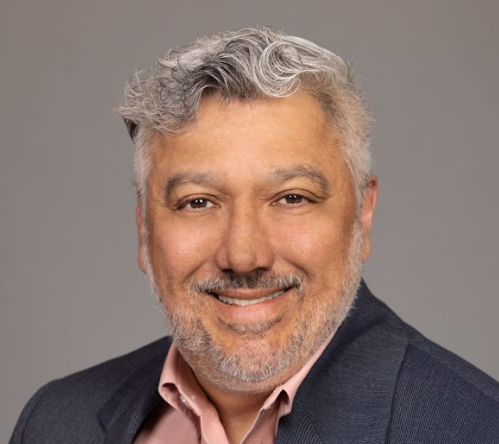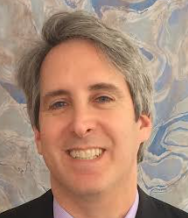touchEXPERT BRIEFING Improving disease screening in Lennox-Gastaut syndrome
Watch four leading experts discuss the Refractory Epilepsy Screening Tool for Lennox-Gastaut syndrome (REST-LGS) and its diagnostic and treatment implications.
Dr Piña-Garza describes the burden of Lennox-Gastaut syndrome (LGS) for patients, caregivers and healthcare systems, and the importance ensuring an accurate and timely diagnosis for all patients with LGS.
1/4 Next InterviewIn this interview, we asked Dr Jesus Eric Piña-Garza the following questions:
- Please outline the burden of LGS for patients, caregivers and healthcare systems?
- Why is it important to achieve an accurate diagnosis of LGS and avoid diagnostic delays?
Dr Jesus Eric Piña-Garza is chief of the division of child, adolescent and developmental neurology and director of the paediatric epilepsy program at Tristar neurology residency program and Centennial Children’s Hospital, Nashville, TN. He is a fellow of the American Neurological Association and the American Epilepsy Society, and is a member of the American Academy of Neurology and the Child Neurology Society. He has authored or co-authored more than 100 chapters, publications and abstracts.
Disclosures: Dr Jesus Eric Piña-Garza has served as advisor and has been part of the speaker bureau for Aquestive therapeutics, Eisai, Greenwich, Jazz Pharmaceuticals, Marinus, Neurelis, SK life science, Sunovion, Supernus and UCB pharma. He also receives royalties from Elsevier for his published book.
Patricia McGoldrick, NP, MPA, MSN highlights current screening and diagnostic challenges to achieving an accurate and timely diagnosis of LGS.
2/4 Next InterviewIn this interview, we asked Patricia McGoldrick, NP, MPA, MSN the following questions:
- How is LGS currently screened for and diagnosed?
- Please outline some of the current challenges with LGS screening and diagnosis, particularly in adult patients?
Patricia McGoldrick, NP, MPA, MSN works with Dr Wolf in Pediatric Epilepsy at Maria Fareri Children’s Hospital and Boston Children’s Health Physicians of New York and Connecticut. Alongside Dr Wolf, she was responsible for the growth of the paediatric epilepsy program at Mount Sinai, has received several awards for posters from the American Epilepsy Society, and has co-authored a number of peer reviewed articles and guides for parents and other health care providers. Her interest is in the treatment of difficult to manage epilepsy and its comorbidities.
Disclosures: Patricia McGoldrick, NP, MPA, MSN has received honoraria from Greenwich Biosciences, Eisai, Jazz Pharmaceuticals, LivaNova, Sunovion, Neurelis, Marinus and UCB, and has participated as an investigator in clinical trials for Eisai, Greenwich Pharmaceuticals, NeuroPace, Neurelis, UCB and Zogenix.
Dr Wolf outlines the key features of the REST-LGS tool, including how it was developed and validated.
3/4 Next InterviewIn this interview, we asked Dr Steven Wolf the following questions:
- Please outline the key features of the REST-LGS tool?
- How was the REST-LGS tool developed and validated?
- How reliable is the REST-LGS tool?
Dr Steven Wolf is director of paediatric epilepsy at Boston Children’s Health Physicians of New York and Connecticut at Maria Fareri Children’s Hospital in Westchester Medical Center, New York, in addition to being professor of clinical paediatrics and neurology at New York Medical College in Valhalla, New York. His interest is in the treatment of hard to manage epilepsy and its comorbidities. He has authored a number of peer reviewed article and guides for parents and other health care providers, and lectures about epilepsy both nationally and internationally.
Disclosures: Dr Steven Wolf has received advisory board, speaker bureau and research support from Aquestive/Cataylist, Biomarin, Eisai Pharma, Jazz Pharmaceuticals, LivaNova, Longbard Pharma, Neurilis, Neuropace, SKlife Pharma, Sunovion, Takeda Pharma and UCB/Zogenix
Dr Davis discusses the diagnostic and management implications of the REST-LGS tool for ensuring a timely and accurate LGS diagnosis for patients of all ages.
4/4 Leave FeedbackIn this interview, we asked Dr Kathryn Davis the following questions:
- In what contexts do you feel the REST-LGS tool would be beneficial for LGS screening?
- In what way does this tool represent an advance over existing screening methods for PGS?
- What are the implications of improved screening for disease management and outcomes?
Dr Kathryn Davis is the director of the Penn Epilepsy Center in Philadelphia. She has expertise in epilepsy, epilepsy neuroimaging, electroencephalography (EEG), and the presurgical evaluation of patients with epilepsy. Her research focuses on advancing invasive neurophysiology and neuroimaging to better localise epileptic networks in medication refractory epilepsy, which may facilitate improved management strategies.
Disclosures: Dr Kathryn Davis has received advisory board fees from Azurity, Neuralis, Rapport Therapeutics, SK Life Sciences, UNEEG and UCB, has acted as a consultant for Spark Therapeutics and received author royalties from UpToDate. Honoraria fees from Jazz Pharmaceuticals.
Overview & Learning Objectives
Overview
Lennox-Gastaut syndrome (LGS) is diagnosed by the recognition of the classic triad of symptoms.1–3 However, due to heterogenous disease presentation and changing symptomology over time, many adults with LGS no longer meet these clinical criteria,1 making an accurate diagnosis challenging, particularly in adolescents and adults with incomplete medical records.1 The Refractory Epilepsy Screening Tool for LGS (REST-LGS) was developed to improve the identification of patients with LGS.4
In this activity, four leading experts discuss the importance of achieving an accurate and timely diagnosis of LGS, key features of the REST-LGS5 and its diagnostic and treatment implications.
Learning Objectives
After watching this activity, participants should be better able to:
- Describe the importance of avoiding delays and ensuring an accurate diagnosis for all patients with LGS, in addition to current screening and diagnostic challenges
- Outline the key features of the REST-LGS tool, and how it was developed and validated
- Discuss the diagnostic and management implications of the REST-LGS tool for ensuring a timely and accurate LGS diagnosis for patients of all ages
Faculty & Disclosures

Dr Jesus Eric Piña-Garza, MD
The Children’s Hospital at TriStar Centennial Medical Center, Nashville, TN, USA
Dr Jesus Eric Piña-Garza is chief of the division of child, adolescent and developmental neurology and director of the paediatric epilepsy program at Tristar neurology residency program and Centennial Children’s Hospital, Nashville, TN. He is a fellow of the American Neurological Association and the American Epilepsy Society, and is a member of the American Academy of Neurology and the Child Neurology Society. He has authored or co-authored more than 100 chapters, publications and abstracts.
Disclosures: Dr Jesus Eric Piña-Garza has served as advisor and has been part of the speaker bureau for Aquestive therapeutics, Eisai, Greenwich, Jazz Pharmaceuticals, Marinus, Neurelis, SK life science, Sunovion, Supernus and UCB pharma. He also receives royalties from Elsevier for his published book.

Patricia McGoldrick, NP, MPA, MSN
Maria Fareri Children's Hospital, Valhalla; Boston Children's Hospital Physicians, New York, NY, USA
Patricia McGoldrick, NP, MPA, MSN works with Dr Wolf in Pediatric Epilepsy at Maria Fareri Children’s Hospital and Boston Children’s Health Physicians of New York and Connecticut. Alongside Dr Wolf, she was responsible for the growth of the paediatric epilepsy program at Mount Sinai, has received several awards for posters from the American Epilepsy Society, and has co-authored a number of peer reviewed articles and guides for parents and other health care providers. Her interest is in the treatment of difficult to manage epilepsy and its comorbidities.
Disclosures: Patricia McGoldrick, NP, MPA, MSN has received honoraria from Greenwich Biosciences, Eisai, Jazz Pharmaceuticals, LivaNova, Sunovion, Neurelis, Marinus and UCB, and has participated as an investigator in clinical trials for Eisai, Greenwich Pharmaceuticals, NeuroPace, Neurelis, UCB and Zogenix.

Dr Steven Wolf, MD
Maria Fareri Children's Hospital, Valhalla; Boston Children's Hospital Physicians, New York, NY, USA
Dr Steven Wolf is director of paediatric epilepsy at Boston Children’s Health Physicians of New York and Connecticut at Maria Fareri Children’s Hospital in Westchester Medical Center, New York, in addition to being professor of clinical paediatrics and neurology at New York Medical College in Valhalla, New York. His interest is in the treatment of hard to manage epilepsy and its comorbidities. He has authored a number of peer reviewed article and guides for parents and other health care providers, and lectures about epilepsy both nationally and internationally.
Disclosures: Dr Steven Wolf has received advisory board, speaker bureau and research support from Aquestive/Cataylist, Biomarin, Eisai Pharma, Jazz Pharmaceuticals, LivaNova, Longbard Pharma, Neurilis, Neuropace, SKlife Pharma, Sunovion, Takeda Pharma and UCB/Zogenix

Dr Kathryn Davis, MD
Hospital of the University of Pennsylvania, Philadelphia, PA, USA
Dr Kathryn Davis is the director of the Penn Epilepsy Center in Philadelphia. She has expertise in epilepsy, epilepsy neuroimaging, electroencephalography (EEG), and the presurgical evaluation of patients with epilepsy. Her research focuses on advancing invasive neurophysiology and neuroimaging to better localise epileptic networks in medication refractory epilepsy, which may facilitate improved management strategies.
Disclosures: Dr Kathryn Davis has received advisory board fees from Azurity, Neuralis, Rapport Therapeutics, SK Life Sciences, UNEEG and UCB, has acted as a consultant for Spark Therapeutics and received author royalties from UpToDate. Honoraria fees from Jazz Pharmaceuticals.
References
- Kerr M, Kluger G, Philip S. Evolution and management of Lennox-Gastaut syndrome through adolescence and into adulthood: are seizures always the primary issue? Epileptic Disord 2011;13(Suppl 1):S15-26.
- Arzimanoglou A, Resnick T. All children who experience epileptic falls do not necessarily have Lennox-Gastaut syndrome... but many do. Epileptic Disord 2011;13(Suppl 1):S3-13.
- Bourgeois BF, Douglass LM, Sankar R. Lennox-Gastaut syndrome: a consensus approach to differential diagnosis. Epilepsia 2014;55(Suppl 4):4-9.
- Piña-Garza JE, Boyce D, Tworek DM, et al. The refractory epilepsy screening tool for Lennox-Gastaut syndrome (REST-LGS). Epilepsy Behav. 2019;90:148-53

